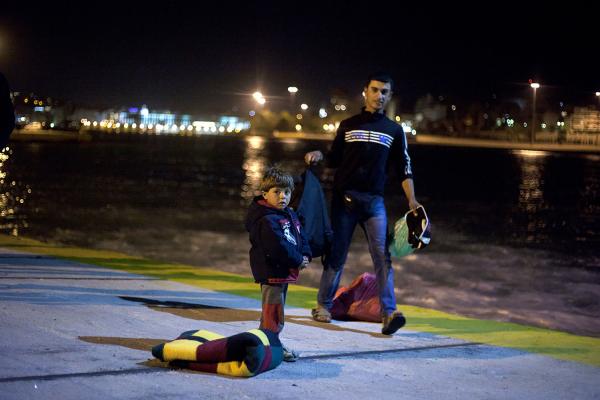-
Tips for becoming a good boxer - November 6, 2020
-
7 expert tips for making your hens night a memorable one - November 6, 2020
-
5 reasons to host your Christmas party on a cruise boat - November 6, 2020
-
What to do when you’re charged with a crime - November 6, 2020
-
Should you get one or multiple dogs? Here’s all you need to know - November 3, 2020
-
A Guide: How to Build Your Very Own Magic Mirror - February 14, 2019
-
Our Top Inspirational Baseball Stars - November 24, 2018
-
Five Tech Tools That Will Help You Turn Your Blog into a Business - November 24, 2018
-
How to Indulge on Vacation without Expanding Your Waist - November 9, 2018
-
5 Strategies for Businesses to Appeal to Today’s Increasingly Mobile-Crazed Customers - November 9, 2018
Turkey migrant crisis deal comes into effect
European officials have struggled to develop a coherent response to the migrant crisis, and the agreement that was struck Friday is complicated by the fact that Greece now lacks the infrastructure to ensure asylum seekers are given a fair hearing before they are sent back to Turkey, according to European officials.
Advertisement
After a string of border closures on the Balkan migrant route that has left Athens dealing with a huge bottleneck, Prime Minister Alexis Tsipras has demanded reinforcements of 2,300 agents from European Union border agency Frontex.
According to a statement issued by the European Union, the sides agreed that all new irregular migrants crossing from Turkey into Greek islands will be returned to Turkey, starting from 20 March, and for every Syrian being returned to Turkey from Greek islands, another Syrian will be resettled from Turkey to the EU.
Thousands of people marched in London, Athens, Barcelona, Vienna, Amsterdam and several Swiss cities on Saturday as Greece rushed to put in place measures needed to enforce the deal sealed at a Brussels summit on Friday.
The aim is to stop migrants from making the perilous trip across the Aegean Sea, where around 4,000 people have drowned over the past few years.
Also, not all of the asylum seekers were to board the ferries: newcomer refugees were to stay until their registration is confirmed.
An EU proposal would see Turkey offered financial aid and political concessions in return for taking back all migrants travelling to Greece.
But yesterday there was chaos on the border because none of the promised 4,000 extra staff, including lawyers, judges, translators and police, had arrived. This group includes people fleeing war-torn countries such as Syria, who are likely to be granted refugee status, as well as people who are seeking jobs and better lives, who governments are likely to rule are economic migrants.
Greece is still relocating migrants from the islands to temporary camps on the mainland.
“We are asking for asylum on humanitarian grounds”, Ahmed, a refugee from Aleppo, said upon his arrival in Lesbos.
The Greek coastguard said the bodies of the girls, aged around one and two, were recovered off the tiny island of Ro.
The agreement does not however affect the more than 46,000 refugees and migrants already in Greece.
“Each application will be examined individually with proper oversight and full rights of appeal with full respect to worldwide legislation, so that the whole procedure can not be challenged in courts”, a Greek government official said.
Turkey, which is already hosting 2.7 million Syrian refugees, has been a primary departure point for Europe, while Greece has borne the brunt of arrivals. Davutoglu said he hoped that beyond helping the refugees, the deal would also “deepen EU-Turkey relations” with the approval of unprecedented access to Europe for Turkish nationals and the speeding-up of bogged-down EU membership talks.
The United Nations and rights groups fear the deal could violate worldwide law that forbids the mass deportation of refugees.
Syrian refugee Yasmine said she will continue to wait at the Macedonian border with her two children and two sisters.
Advertisement
On Saturday, thousands of people protested in support of refugees and against racism.




























